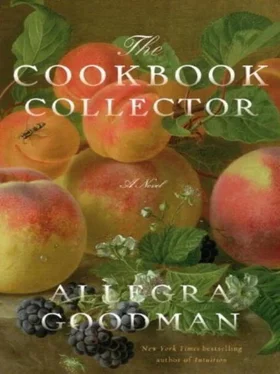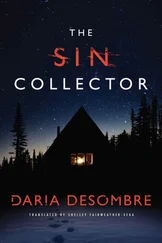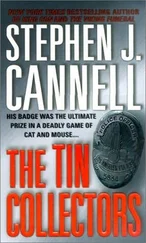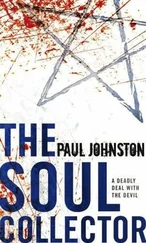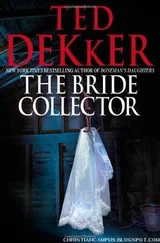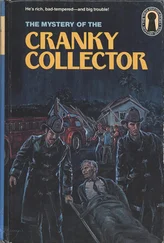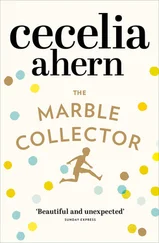“I’m sorry, Dad.”
“Never apologize, never explain,” said Lou.
“How are you?” Orion picked up his father’s flea-market briefcase, an old-fashioned doctor’s bag.
Lou shrugged. “I’m doing about as well as can be expected, given that Dick Cheney and the Bushies have ceded our government to a military-industrial complex which is bombing the Afghan people back to the Stone Age—as if that’s going to solve our problems.”
“Let me take that.” Lou’s bag was surprisingly heavy. “Do you want something to eat or drink?”
“I had a drink.” Lou laughed at Orion’s quick glance.
“Shmancy,” Lou said as Orion unlocked the BMW. He caressed the seat when he sat down. “What is this, leather?” He sniffed the upholstery.
“Do you want to rest?” Orion began driving back to Cambridge. “We have plenty of time. Do you want to take a nap?”
“Nah.”
“You have the poem?”
Lou gasped. “Oh, the poem !”
“Dad!”
“I’m kidding,” Lou said. “What’s wrong with you?”
“Everything,” Orion muttered as an SUV cut him off.
“Drive to the river,” Lou told his son.
“What’s at the river? I’m going over the river. See? We’re driving to the bridge now.”
“Closer,” said Lou.
Orion parked on Memorial Drive, and he and Lou stepped out. “Watch the traffic, Dad. Careful!” Orion held Lou back as cars whizzed past, and then guided him across the road to the grassy bank.
“Hmm.” Lou approached the river and peered down into the murky water.
Orion had a sudden vision. His father in waders and a fly-fishing vest, the green canvas fisherman’s hat with a flip-down magnifying glass clipped to the brim. Orion had often watched Lou fishing waist-deep in rushing water. Whenever Orion was too short to stand, Lou would lift him onto a rock on the bank, and then Orion watched his dad casting, his lines floating beautifully, scribbling the surface with a delicately tied caddis or a little midge or mayfly. Sometimes a sleek otter would swim past, a stealthy creature, only its nose showing, its long body submerged, gliding just under the surface of the stream. Orion knew better than to shout this out. No talking and no splashing were the rules, but Orion kept still because Lou held him in suspense, casting and casting with no luck, and then suddenly a trout, bending his wand to water, tripping line with a zzzzzz. Splashing, leaping, a huge brown fish Lou wrestled with his hands and looked in the eye, before he let it go. This casting, this deft motion of the arm and wrist, this balancing in currents with legs apart, had always seemed to Orion the center of his father’s life, the source of his art.
When he was ten, Orion had to create a family coat of arms for school. With markers on poster board, he outlined a shield and then divided it on the diagonal. On one side of the divide he drew a pen, an apple, and a rose to represent his mother—the writer, teacher, gardener. On the other side, he drew a big-eyed fish for Lou. On the surface his parents were still together. They didn’t divorce for another three years, but Lou was already gone many weekends, and in summers, and odd times in between.
“Is there a motto for the Steiners?” Orion had asked his mother.
“‘Catch and release,’” Diane had told him, and Orion hadn’t heard the irony at all. The words sounded poetic and sportsmanlike, and he wrote them out in yellow marker, the color closest in the box to gold.
“You aren’t going to find much here,” Lou said. “Maybe a pike. Possibly a bass.”
“The Charles isn’t known for fishing,” Orion said.
They were standing close to the BU Boathouse, east of the place Orion and Sorel walked in the mornings. No one was rowing, the shells were all locked up inside. A lone rowboat floated gently, tethered to the dock.
Lou said, “Let’s take that boat out for a paddle.”
“Take the boat? We can’t take the boat.”
“Why not? We’ll bring it back,” Lou told him.
“But it’s not ours.”
“Oh, don’t be such a skirt.”
“I’m sorry,” Orion said, with some heat. “Not everyone can live like you. I wish I did, actually. I’d rather be a painter or a poet, and work for myself and do whatever the hell I wanted without dealing with people, and all their meetings and their games. You have no idea what it’s like to fight and play politics and—”
“Hold on, hold on,” Lou interrupted. “Let me disabuse you, kid. For sheer backstabbing and jealousy, the politics of poetry are second to none. I guarantee that, compared to poetry in America, anything you’ve experienced at ISIS is child’s play.”
“Yeah, right.” Orion kicked a tuft of grass. He did not see his father’s tender face. He did not realize that Lou had visions too, that he turned to Orion and saw the boy who asked questions like, “Is it true that if you eat enough poppy seeds you fall asleep?”
“Look, it turns out nothing is easy,” Lou murmured. “We’re all dodging bullets of one kind or another—death or disappointment. Whatcha gonna do?”
“You should have warned me earlier,” Orion said. “I would have lowered my expectations.”
Lou grinned. “True story. A woman and her lovely young daughter are sitting on the beach. An enormous wave comes crashing down and sweeps the daughter away.
“The mother is hysterical. Weeping, she stands at the water’s edge. If there’s a God in heaven , she screams, please bring back my child!
“Lo and behold the wave returns and washes up the lovely daughter, alive and well.
“Thank you, merciful God! the mother cries. Then she looks around her. She looks all around, and at last she calls up to heaven once more. She cries out, There was also a hat? ”
They laughed together, and for a moment Orion felt like himself. He wished he could really talk to Lou, and tell him how he hated ISIS. He wished above all that he could tell him about Sorel.
“We should go,” Orion said instead. “We should get there early to check the microphone. You brought your reading glasses, right?”
Lou overrode the question with his own. “How’s Molly?”
Orion helped his father up the riverbank. “She’s good.”
“Is that all?” Lou asked. “That’s a shame.”
“How is ‘good’ a shame, Dad?”
“Oh, because goodness is necessary but insufficient.”
“She’s working very hard. She’s totally committed to medicine.”
“I never understood that,” Lou said.
“What, that Molly is so practical and grounded?”
“I guess I never understood why ‘grounded’ was such a positive thing,” Lou told his son mildly. “Naturally, your mother and I disagreed on this. In your case, I admit, I always pictured you with someone flighty.”
Low-slung Kresge Auditorium opened like the wide mouth of a baleen whale. In the glass-walled lobby, professors and administrators milled with students and ISIS employees. Even as Orion opened the door for Lou, he saw the dean of the School of Engineering and the provost standing before a life-sized photograph of Jonathan propped up on an easel. It didn’t matter that Jonathan had dropped out of grad school. The university reclaimed him. Another easel supported Mel Millstein, and he had his mourners too, his wife, and her rabbi, listed on the program as Rabbi Shimon Zylberfenig. Suspiciously, Mel’s grown children eyed the alien in the black frock coat.
Hundreds upon hundreds were paying their respects, and those who knew Jonathan and Mel the least looked most tragic, mouths turned down, eyes despondent. Did you see Mel’s wife? they whispered to one another. Did you see Jonathan’s parents? They came from Nebraska. Look. Is that his brother? Over there . And the crowd gazed upon the Millstein and Tilghman families, celebrities in the new hierarchy of grief.
Читать дальше
